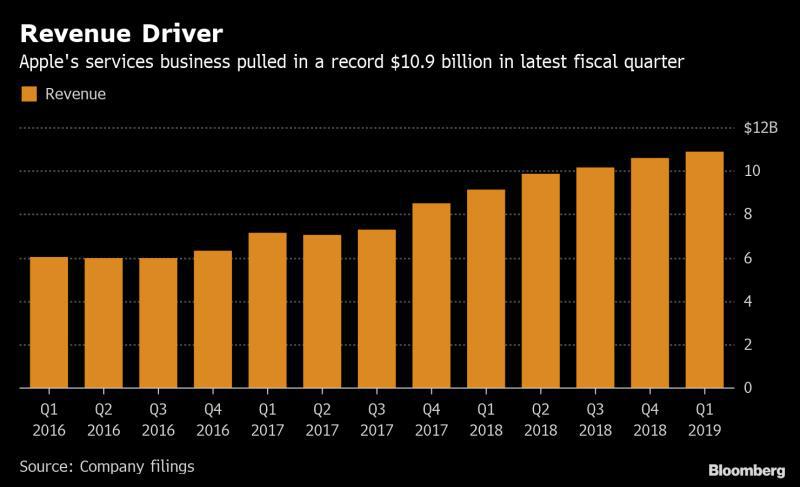
Apple Inc.’s Chinese smartphone shipments plummeted an estimated 20 percent in 2018’s final quarter, underscoring the scale of the iPhone maker’s retreat in the world’s largest mobile device arena against local rivals like Huawei Technologies Co.

The domestic market contracted 9.7 percent in the quarter, but Apple declined at about twice that pace, research firm IDC said in a report on Monday. A slowing economy, lengthening replacement times and the iPhone’s hefty price tag contributed to the U.S. giant’s decline, it said. Xiaomi Corp. fared even worse in the final months of last year, when shipments plunged almost 35 percent, the consultancy estimates.
Smartphone labels from Apple to Samsung Electronics Co. are contending with a plateauing global market after years of breakneck growth, as a lack of innovation discourages consumers from replacing devices as often as they used to. Apple also has to cope with the rise of Huawei, which is eroding its share of a market once pivotal to driving its growth. The country’s top electronics retailers slashed prices on the latest iPhones by as much as 20 percent in past months -- an unusual move that illustrated waning enthusiasm for Apple’s gadgets.
“Apple doesn’t have a good go-to market strategy that fits the rapidly changing Chinese market,” said Nicole Peng, a senior director at Canalys. “It also seemed to be slow in reacting to China’s economic slowdown and changes in consumption structure.”
Dissipating Chinese demand compounds the problems at Apple, which is struggling to deliver on another hit device as its marquee gadget loses some of its cachet. Revenue from the iPhone slid 15 percent in the October to December period. To compensate for the loss, Apple is trying to replace phone sales with revenue from services.
Chief Executive Officer Tim Cook has seen China as a key part of Apple’s strategy: last fiscal year the company generated almost $52 billion in revenue from Greater China, a region that includes Hong Kong. But with the country announcing its slowest economic growth since 2009, Apple said its sales fell 27 percent in the holiday quarter. The Chinese slowdown was the driving factor behind Apple’s first revenue outlook cut in almost two decades. Cook however emphasized the long haul, highlighting 19 percent growth in services revenue.
“When smartphones became a commodity for Chinese customers, multinationals need to adjust their overall sales and marketing strategies,” Peng said. “Apple didn’t seem to change its Chinese marketing plans.”
Huawei, which briefly surpassed Apple to become the world’s No. 2 smartphone brand in 2018, remains the runaway leader at home. It shored up its lead after unit shipments soared 23.3 percent in the December quarter, leading all major brands, according to IDC. That’s despite grappling with an unusually turbulent few months during which its finance chief was arrested on allegations of bank fraud, and the U.S. marshaled its allies to try and block the company from selling next-generation networking gear.
Apple was ranked fourth by shipments in the country during the period, trailing China’s Oppo and Vivo, IDC said. Fifth-ranked Xiaomi, a Chinese name that experienced rapid growth just before its 2018 initial public offering, ran afoul of inventory corrections and an internal restructuring, IDC said.
The industry is now counting on innovations such as foldable screens, 3D cameras and 5G-ready phones to revitalize the market. The argument is that consumers will get hooked once they experience first-hand phones with data speeds more than 10 times faster than today’s devices.
Lei Jun, Xiaomi’s billionaire co-founder, is among those who expect the advent of 5G to energize demand. But IDC argues blazing-fast phones won’t become the standard until 2020, because the rollout of 5G networks is just getting underway.
“The domestic smartphone market environment in 2019 doesn’t look very optimistic,” IDC senior analyst Wang Xi said in the report. And “5G phones will still only comprise a very small portion of the overall market. We’ve a long way to go before they become mainstream,” IDC said.
Source: Bloomberg



















Latest comments